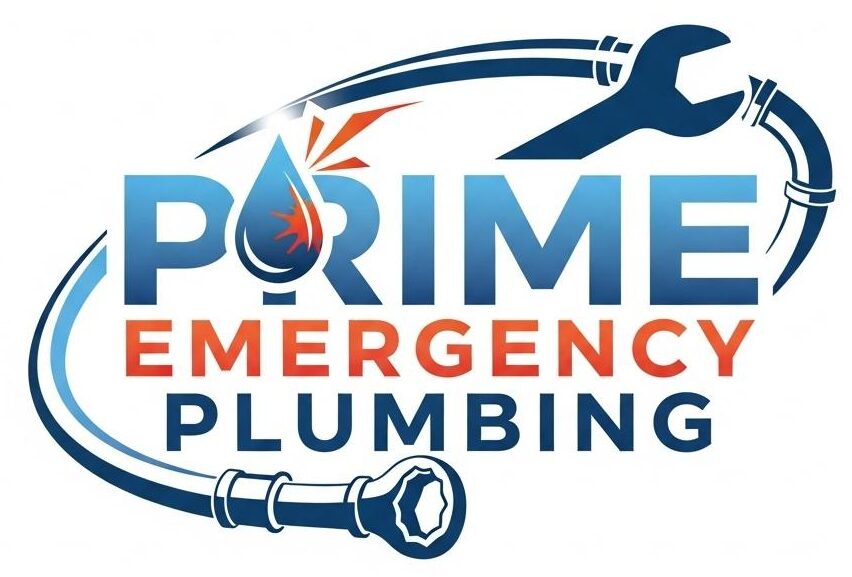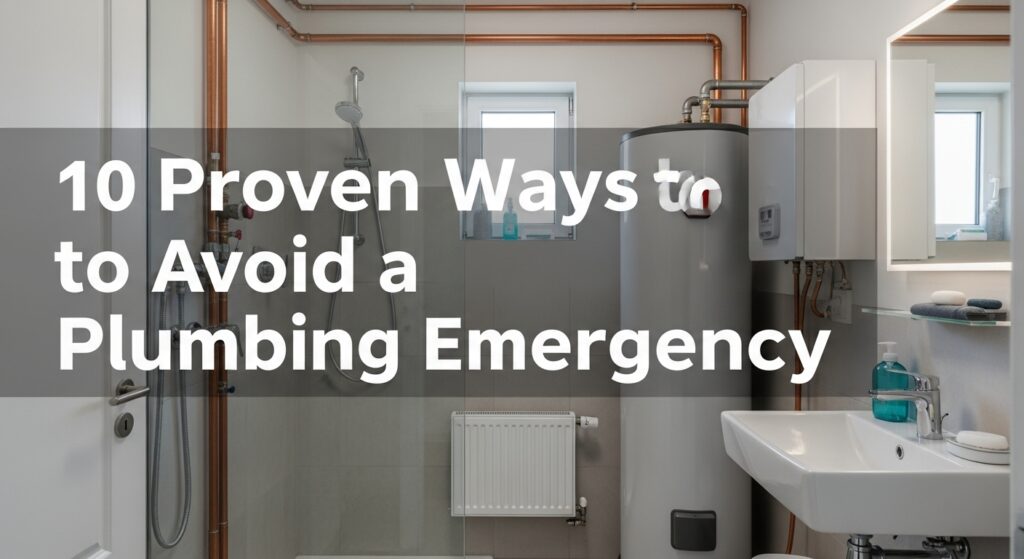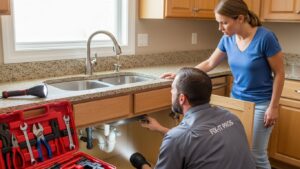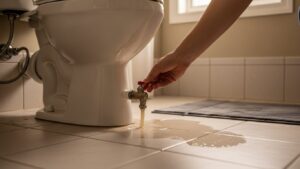Introduction: Understanding the Importance of Plumbing Maintenance
When it comes to home ownership, one of the most dreaded surprises is a plumbing emergency. Burst pipes, overflowing toilets, or a flooded basement can cause thousands in damages and turn a peaceful day into chaos. Understanding how to avoid a plumbing emergency begins with proactive maintenance and smart prevention.
Your plumbing system works quietly behind the scenes, delivering clean water and removing waste efficiently. But when it’s neglected, even a small issue can spiral into a full-blown disaster. By taking the right steps, you can protect your home, save money, and maintain peace of mind.
1. Schedule Regular Plumbing Inspections
Routine inspections are the cornerstone of preventive maintenance. A professional plumber can identify potential problems long before they become emergencies.
Why Annual Plumbing Checkups Matter
Over time, pipes corrode, seals wear out, and small leaks begin to form. These issues are often invisible until it’s too late. Annual inspections allow plumbers to catch these problems early—saving you from costly repairs.
How Professionals Detect Hidden Leaks
Using infrared cameras, pressure tests, and acoustic devices, plumbers can locate hidden leaks behind walls or under floors. This advanced detection helps homeowners fix issues before they cause structural damage or mold growth.
2. Avoid Flushing the Wrong Items Down the Drain
Improper waste disposal is one of the top causes of plumbing issues. Toilets and drains are designed for specific materials—anything else can lead to severe blockages.
Common Items That Clog Drains
Avoid flushing:
- Wet wipes (even those labeled “flushable”)
- Feminine hygiene products
- Paper towels
- Grease or cooking oil
- Cotton balls and hair
Proper Waste Disposal Practices
Use a trash can for non-biodegradable waste, and pour used cooking grease into a sealed container for disposal. Installing drain strainers in sinks and showers can prevent hair and debris from causing clogs.
3. Protect Your Pipes During Winter
Cold weather poses one of the biggest threats to your plumbing system. When water freezes inside pipes, it expands—causing cracks or bursts.
How to Prevent Frozen Pipes
- Keep indoor temperatures above 55°F (13°C) even when away.
- Open cabinet doors to allow warm air around pipes.
- Let faucets drip slightly overnight to keep water moving.
Insulation Tips for Cold Climates
Use foam pipe insulation for exposed areas such as basements, crawl spaces, and garages. For extreme conditions, consider heat tape for extra protection.
4. Monitor Water Pressure Levels
Excessive water pressure may feel convenient, but it can strain your pipes and fixtures over time.
Signs Your Water Pressure Is Too High or Low
If you hear banging noises (known as “water hammer”) or notice leaking faucets, your pressure might be too high. Conversely, weak water flow could indicate buildup or leaks.
Using a Pressure Regulator Effectively
Install a pressure regulator to maintain levels between 40–60 psi. Check it annually to ensure it’s functioning properly.
5. Maintain Your Water Heater Regularly
A poorly maintained water heater can lead to leaks, inefficiency, and even burst tanks.
Flushing Sediment From the Tank
Minerals accumulate at the bottom of the tank, reducing heating efficiency and causing corrosion. Drain and flush your tank at least once a year.
When to Call a Professional for Heater Service
If you hear popping noises, see rust-colored water, or experience inconsistent heating, call a licensed plumber to inspect and repair your water heater.
6. Install Drain Screens and Filters
Small, inexpensive tools like drain screens can prevent major clogs. They catch debris, food particles, and hair before they enter your pipes—saving you from future headaches.
7. Watch for Early Warning Signs of Leaks
Water stains, musty odors, or higher water bills are often red flags. Early detection and prompt action can prevent costly emergencies.
8. Know the Location of Your Main Water Shut-Off Valve
In a plumbing emergency, knowing where to shut off your home’s main water supply can stop damage instantly. Take time to locate and label it clearly for all family members.
9. Don’t Ignore Slow Drains or Unusual Sounds
Gurgling noises or slow drainage often signal a blockage forming deeper in the system. Address these signs early to avoid sudden backups or pipe bursts.
10. Establish a Relationship With a Reliable Plumber
Having a trusted plumber on call ensures you get fast, professional help when needed. Building this relationship can also provide discounts on maintenance services and priority emergency response.
Frequently Asked Questions (FAQs)
How often should I schedule a plumbing inspection?
At least once a year is ideal, though older homes or properties with trees near plumbing lines may need semi-annual checks.
Can chemical drain cleaners prevent clogs?
Not recommended. They can corrode pipes over time. Opt for natural cleaners or professional services.
What should I do if a pipe bursts?
Immediately shut off your main water supply, turn off electricity in affected areas, and call a plumber.
How do I know if I have a hidden leak?
Monitor your water bill and look for damp spots, mold, or unusual sounds near walls.
What’s the safest way to clear a slow drain?
Use a plunger or a plumber’s snake. Avoid harsh chemicals to protect your pipes.
Why does my toilet keep running after flushing?
It’s likely due to a faulty flapper or fill valve—an easy fix for most homeowners or plumbers.
Conclusion: Stay Proactive to Prevent Plumbing Disasters
Learning how to avoid a plumbing emergency isn’t just about fixing leaks—it’s about prevention, awareness, and consistency. By inspecting regularly, using drains properly, and maintaining your plumbing system year-round, you can save thousands in potential repair costs.
Remember, a small drip today can turn into a major flood tomorrow. Stay proactive, stay informed, and your plumbing will reward you with years of trouble-free service.




